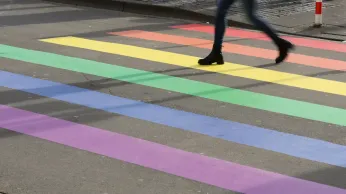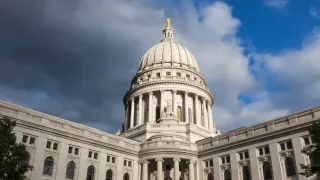
Jul 22
West Palm Beach Removes Rainbow Crosswalk Amid State Directive, Plans New LGBTQ+ Monument
READ TIME: 2 MIN.
The City of West Palm Beach announced the removal of its rainbow-colored crosswalk at Spruce Avenue and Northwood Road, a symbol of LGBTQ+ visibility since its unveiling in 2021, following updated directives from the Florida Department of Transportation (FDOT) . The move comes after FDOT Secretary Jared Perdue issued guidance on June 30, referencing state statute and administrative codes mandating that all traffic control devices and pavement markings adhere strictly to the FDOT Design Manual and the 2023 Florida Greenbook .
The city began power washing the crosswalk in mid-July, joining other Florida cities such as Boynton Beach and Wilton Manors under pressure to remove pride-themed street art or risk losing state funding .
Although the crosswalk's removal is a setback for LGBTQ+ representation in public spaces, city officials have emphasized an ongoing commitment to inclusivity. In a press release, West Palm Beach stated that the original rainbow flag bricks will be preserved and incorporated as the centerpiece of a newly redesigned monument in Serenity Park, just two blocks north of the original crosswalk .
Mayor Keith A. James affirmed, “The rainbow crosswalk has served as a powerful symbol of inclusivity and pride in our community. While we comply with state regulations, we remain fully committed to preserving that spirit through a monument that will continue to honor and celebrate our LGBTQ+ residents and their contributions to the fabric of West Palm Beach” .
The planned monument at Serenity Park will feature the historic colored bricks, enhanced landscaping, improved lighting, and other elements intended to create a “safe, vibrant, and enduring tribute to the LGBTQ+ community” .
The directive to remove pride-themed crosswalks has drawn criticism from LGBTQ+ advocates and local officials across Florida. Critics argue that these vibrant displays serve both as important symbols of community and as visual markers of acceptance and inclusivity .
Rand Hoch, founder of the Palm Beach County Human Rights Council, noted that prior to the FDOT mandate, the city had already planned to refurbish the crosswalk with solid colored bricks due to fading. Instead, the focus shifted to creating a permanent monument after discussions with city officials, including Sybille Canthal, director of West Palm Beach Arts, Culture and Community Building .
Other city leaders across the state have spoken out as well. In Key West, Commissioner Sam Kaufman described the city’s rainbow crosswalk as a reflection of local identity and values, while criticizing the directive as an erasure of essential community symbols .
The FDOT’s position cites safety and regulatory compliance as primary reasons for the removal, but opponents contend that the new policy is part of a broader trend of reducing LGBTQ+ visibility in public life. Financial pressure is also a factor, as cities risk losing critical state funds if they do not comply .
The city has not shared a detailed timeline for the monument’s completion, but has assured residents that the new installation will serve as a lasting tribute to the LGBTQ+ community’s resilience and contributions .
As cities across Florida adapt to the new regulations, advocates and residents continue to push for public spaces that reflect the full diversity of their communities.






